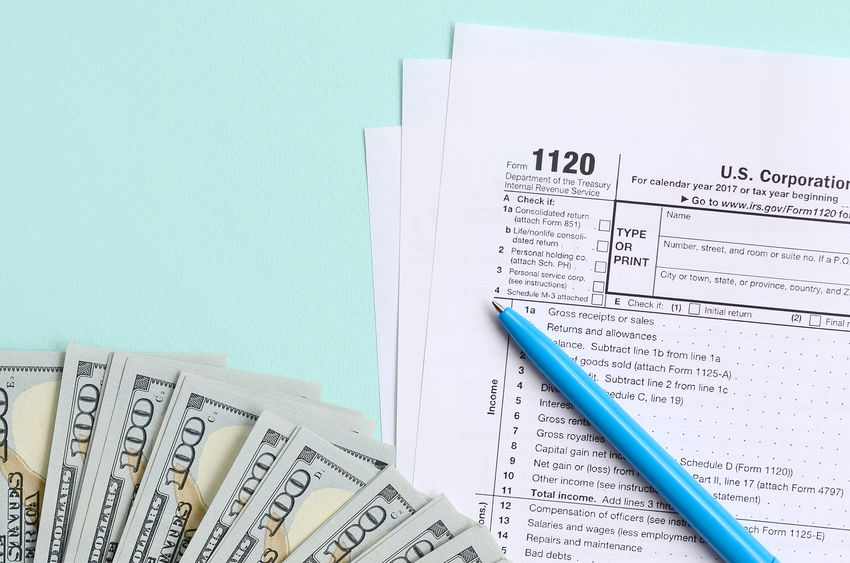When an individual or group of individuals decide to incorporate their domestic business, it is then a requirement to annually file IRS Form 1120, the U.S. Corporate Income Tax Return. There are two basic types of corporations, C corporations and S corporations, the difference between the two are the way that they are taxed. For example, C corporations are subject to double taxation, whereas S corporations do not pay federal corporate income taxes. Any corporation that is filed under tax form “C” uses Form 1120 to file their income taxes and report their income, gains, losses, deductions, credits, and to figure their income tax liability. Any “S” corporation files under Form 1120-S, and must also report the corporation’s shareholders income or losses.
What Do I Need to File Form 1120?
While filing Form 1120, the corporation must provide the following, including but not limited to, the Employer Identification Number “EIN,” the date of incorporation, capital gains, total assets held by the corporation, and the total income. These corporate income taxes can be filed by mail, or your tax preparer may e-file the return.
What Other Tax Forms Must Corporations File?
In addition to Form 1120, corporations must file 1120-W, which is a form used to assist the corporation in determining its tax liability and required installment payments. For corporations that are expecting a net operating loss for the current year, they must also file Form 1138 to request an extension of time for payment of tax for the immediately preceding tax year.








